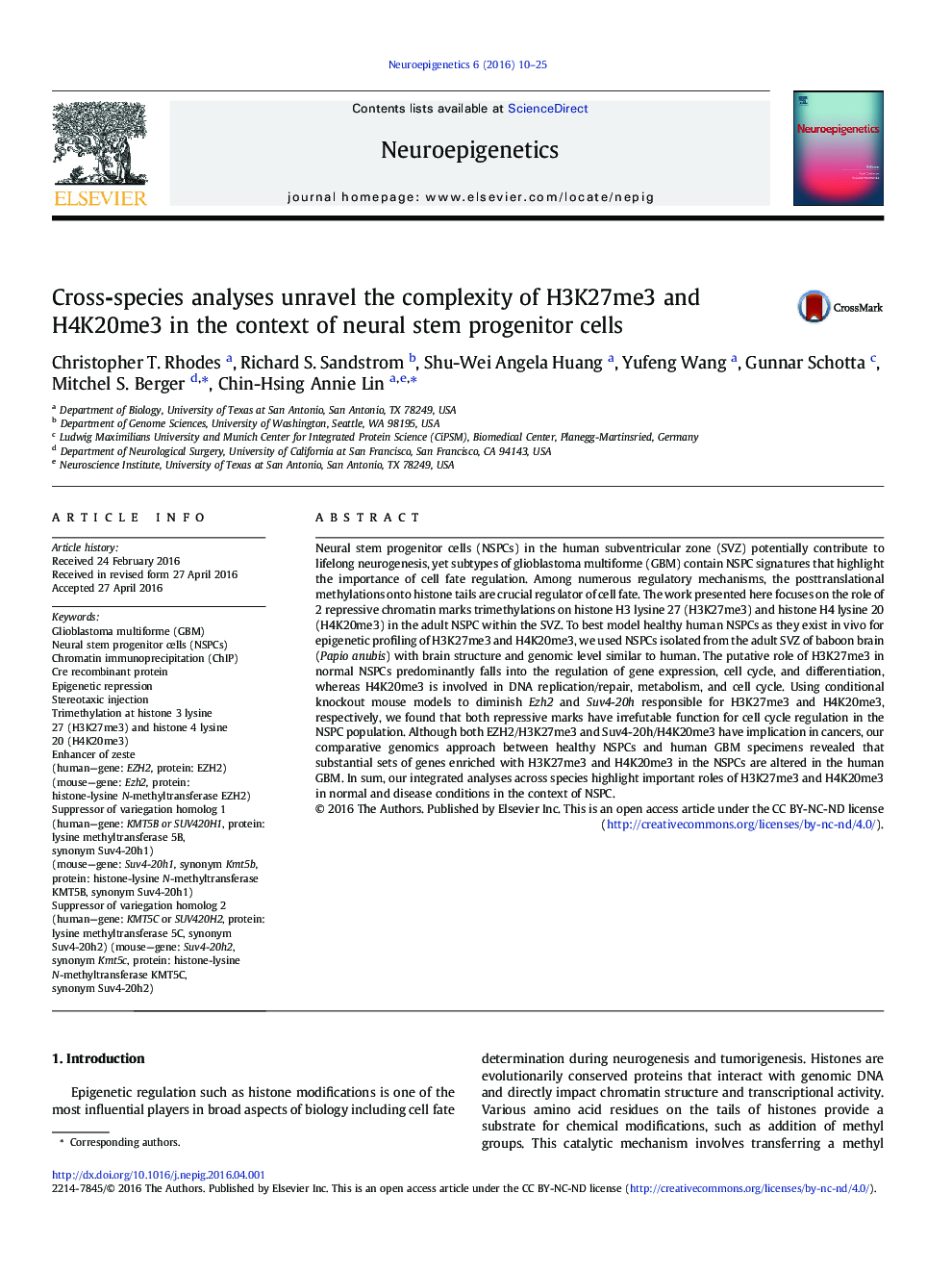| Article ID | Journal | Published Year | Pages | File Type |
|---|---|---|---|---|
| 2823953 | Neuroepigenetics | 2016 | 16 Pages |
Highlight•The first demonstration of analyses across species provides an integrated view of epigenetic repression in the adult neural stem progenitor cells under normal and disease conditions that advances our study using a range of systems to delineate epigenetic regulation and beyond.•A new direction for in vivo population-level analysis relevant to cell fate of stem cell and cancer biology using stereotaxically injected Cre recombinant protein.•A comparative genomics approach reveals epigenetic heterogeneity in subtype of glioblastoma multiforme.•The first alignment of baboon deep-sequencing reads to newly annotated baboon genome.
Neural stem progenitor cells (NSPCs) in the human subventricular zone (SVZ) potentially contribute to lifelong neurogenesis, yet subtypes of glioblastoma multiforme (GBM) contain NSPC signatures that highlight the importance of cell fate regulation. Among numerous regulatory mechanisms, the posttranslational methylations onto histone tails are crucial regulator of cell fate. The work presented here focuses on the role of 2 repressive chromatin marks trimethylations on histone H3 lysine 27 (H3K27me3) and histone H4 lysine 20 (H4K20me3) in the adult NSPC within the SVZ. To best model healthy human NSPCs as they exist in vivo for epigenetic profiling of H3K27me3 and H4K20me3, we used NSPCs isolated from the adult SVZ of baboon brain (Papio anubis) with brain structure and genomic level similar to human. The putative role of H3K27me3 in normal NSPCs predominantly falls into the regulation of gene expression, cell cycle, and differentiation, whereas H4K20me3 is involved in DNA replication/repair, metabolism, and cell cycle. Using conditional knockout mouse models to diminish Ezh2 and Suv4-20h responsible for H3K27me3 and H4K20me3, respectively, we found that both repressive marks have irrefutable function for cell cycle regulation in the NSPC population. Although both EZH2/H3K27me3 and Suv4-20h/H4K20me3 have implication in cancers, our comparative genomics approach between healthy NSPCs and human GBM specimens revealed that substantial sets of genes enriched with H3K27me3 and H4K20me3 in the NSPCs are altered in the human GBM. In sum, our integrated analyses across species highlight important roles of H3K27me3 and H4K20me3 in normal and disease conditions in the context of NSPC.
